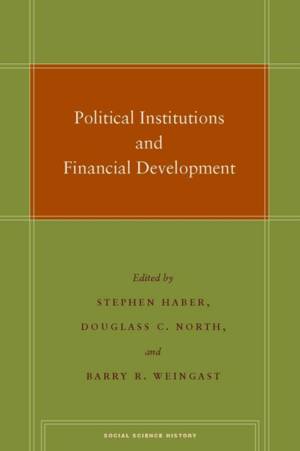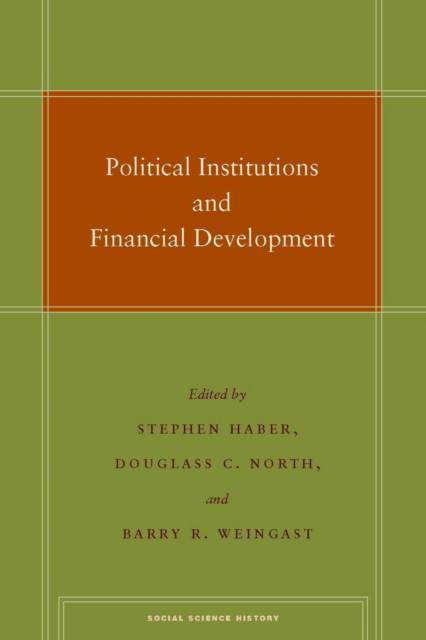
- Retrait gratuit dans votre magasin Club
- 7.000.000 titres dans notre catalogue
- Payer en toute sécurité
- Toujours un magasin près de chez vous
- Retrait gratuit dans votre magasin Club
- 7.000.000 titres dans notre catalogue
- Payer en toute sécurité
- Toujours un magasin près de chez vous
Political Institutions and Financial Development
Description
Economists have long maintained that a well-developed and functioning financial system is a vital prerequisite to economic growth. Countries with robust banking sectors and securities markets--that is, countries in which credit cards, loans, mortgages, and the ability to issue stocks and bonds are available to a broad swath of consumers and businesses--are more prosperous than countries that restrict such access to a favored elite. What is less clear is why some countries develop better financial systems than others. The essays in this volume employ the insights and techniques of political science, economics, and history to provide a fresh answer to this question. While scholarly tradition points to the colonial origin of a country's legal system as the most important determinant of the health of its financial system, this volume points instead to a country's political institutions--its governmental structures and the rules of the political game--as the key. Specifically, the openness and competitiveness of a country's political system tends to reflect itself in the openness and competitiveness of its financial system.
Spécifications
Parties prenantes
- Editeur:
Contenu
- Nombre de pages :
- 320
- Langue:
- Anglais
- Collection :
Caractéristiques
- EAN:
- 9780804756921
- Date de parution :
- 14-12-07
- Format:
- Livre relié
- Format numérique:
- Genaaid
- Dimensions :
- 152 mm x 229 mm
- Poids :
- 544 g






